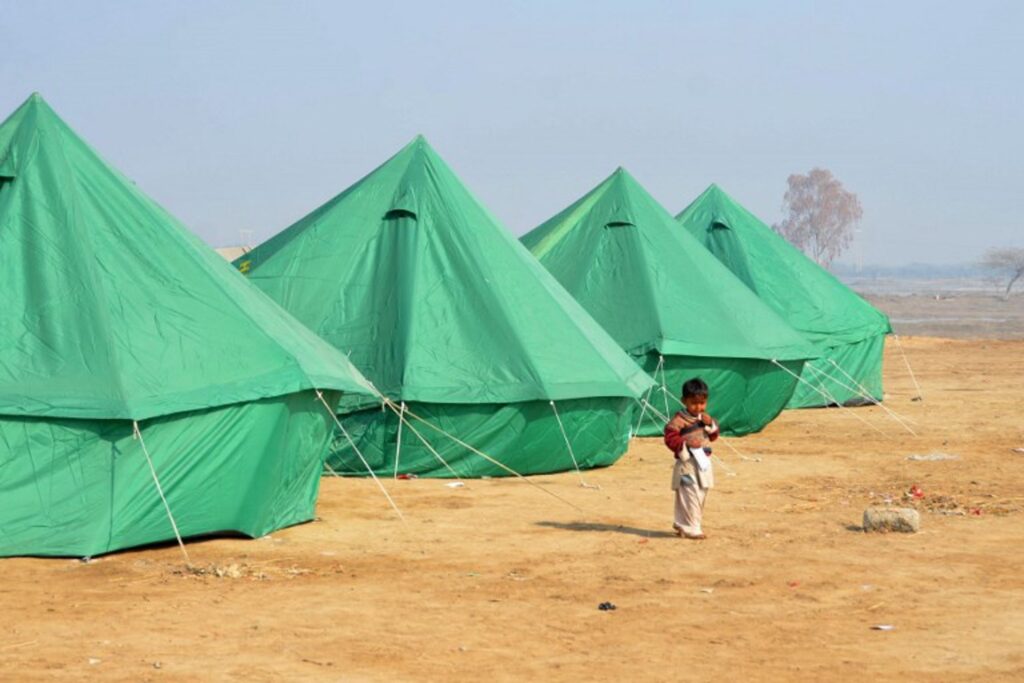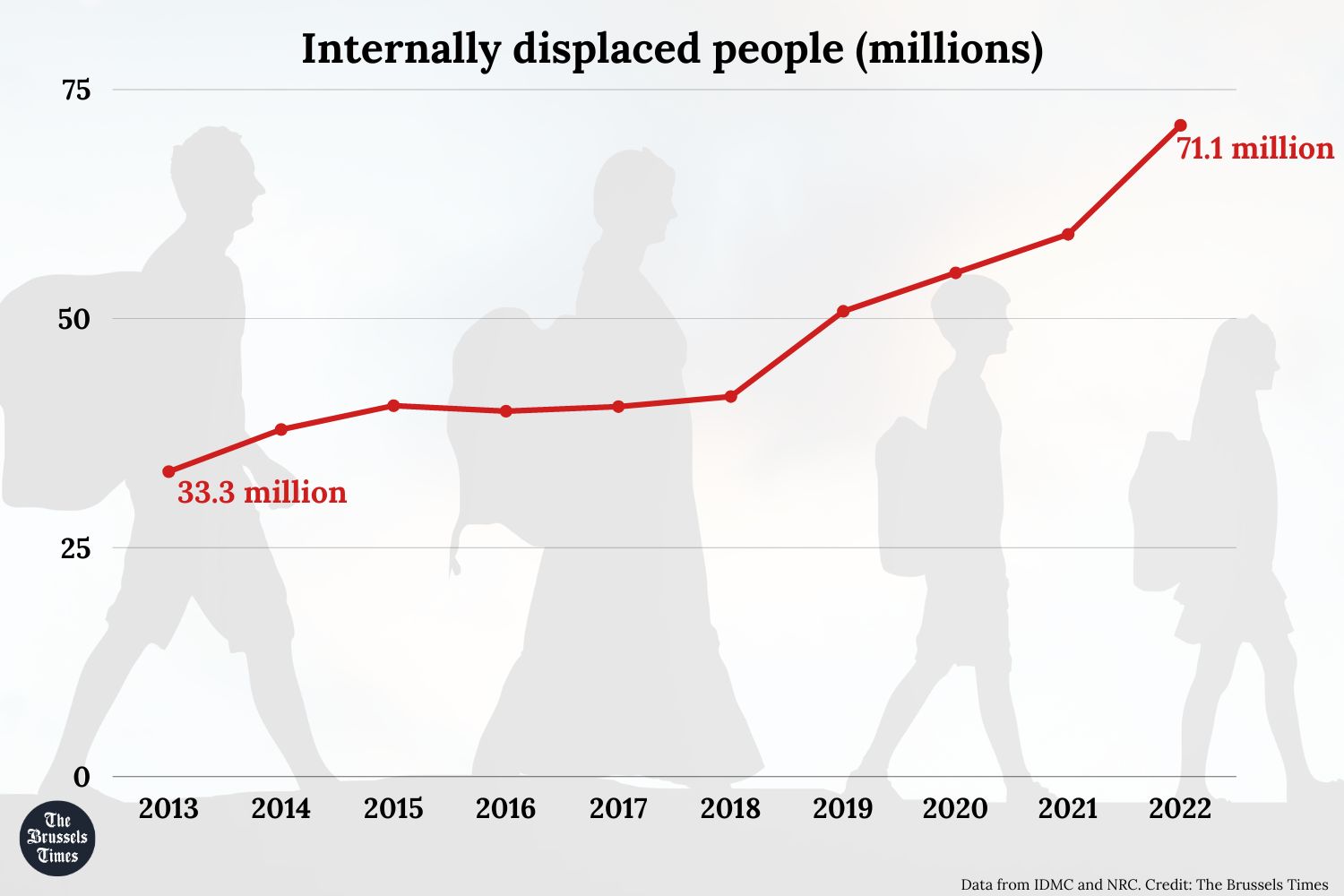Successive crises across the globe have forced more than 71 million people to flee from their homes against their own will in 2022, marking a new record.
Last year, a total of 71.1 million people were registered as internally displaced (IDP) – referring to the number of new forced movements of people within a country. This figure is a 20% jump from the previous year, according to a joint report by the Internal Displacement Monitoring Centre (IDMC) and the Norwegian Refugee Council (NRC).
"Rapidly escalating conflict and violence in countries such as Ukraine and the Democratic Republic of Congo (DRC) and significant disasters such as flooding in Pakistan forced millions of people to flee in 2022," the report stated. In addition to the 17 million displaced within war-torn Ukraine, eight million people were driven from their homes by the floods.
Ten most affected countries
In sub-Saharan Africa, an estimated 16.5 million internal displacements were recorded. More than half were due to conflict, particularly in the DRC and Ethiopia. "They joined the tens of millions of people already living in prolonged displacement as a result of protracted conflict, repeated disasters and a lack of durable solutions."
Although people are forced to flee all over the world, almost three-quarters of the internally displaced live in ten countries: Syria, Afghanistan, the DRC, Ukraine, Colombia, Ethiopia, Yemen, Nigeria, Somalia and Sudan.
Almost 61 million new internal displacements were recorded during the year across 151 countries and territories, a 60% rise and another record.
This includes 28.3 million new movements due to conflict, nearly double the previous year. However, natural disasters are responsible for most of the new movements – forcing 32.6 million people to flee, 40% more than in 2021.
Due to the ongoing conflict in Sudan, which has already forced more than 700,000 people to flee elsewhere in the country, the number of IDPs is expected to rise further.
Related News
- Migration State Secretary disputes Belgium 'illegally detained' two people at border
- 'Where is the action?': Politicians under fire for rights violations at EU's borders
"Conflicts and disasters have combined over the past year to exacerbate pre-existing vulnerabilities and inequalities, causing displacement on a scale never seen before," the head of the NRC, Jan Egeland, said in a statement.
Both organisations stressed that supporting IDPs to return, integrate locally or resettle elsewhere in their countries is essential, but many countries fail to do so. They also called for better data and evidence on solutions to effectively measure the end of displacement.
"Conflict resolution, peacebuilding, disaster risk reduction, climate resilience, food security and poverty reduction must all be strengthened," they concluded.


